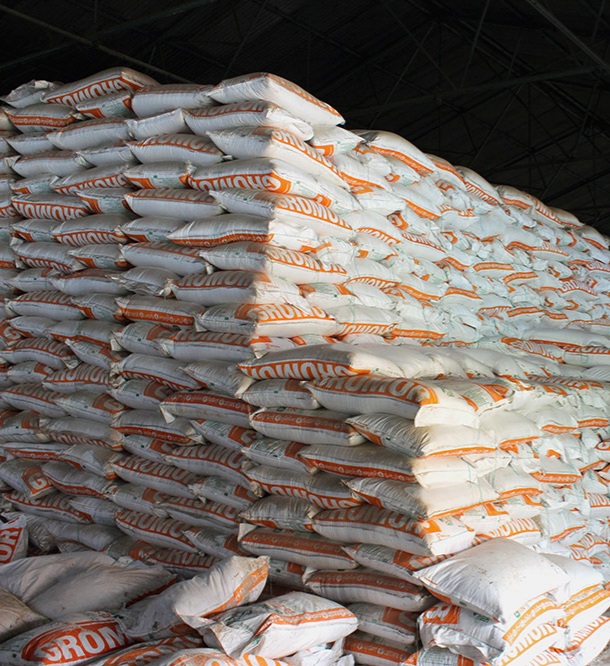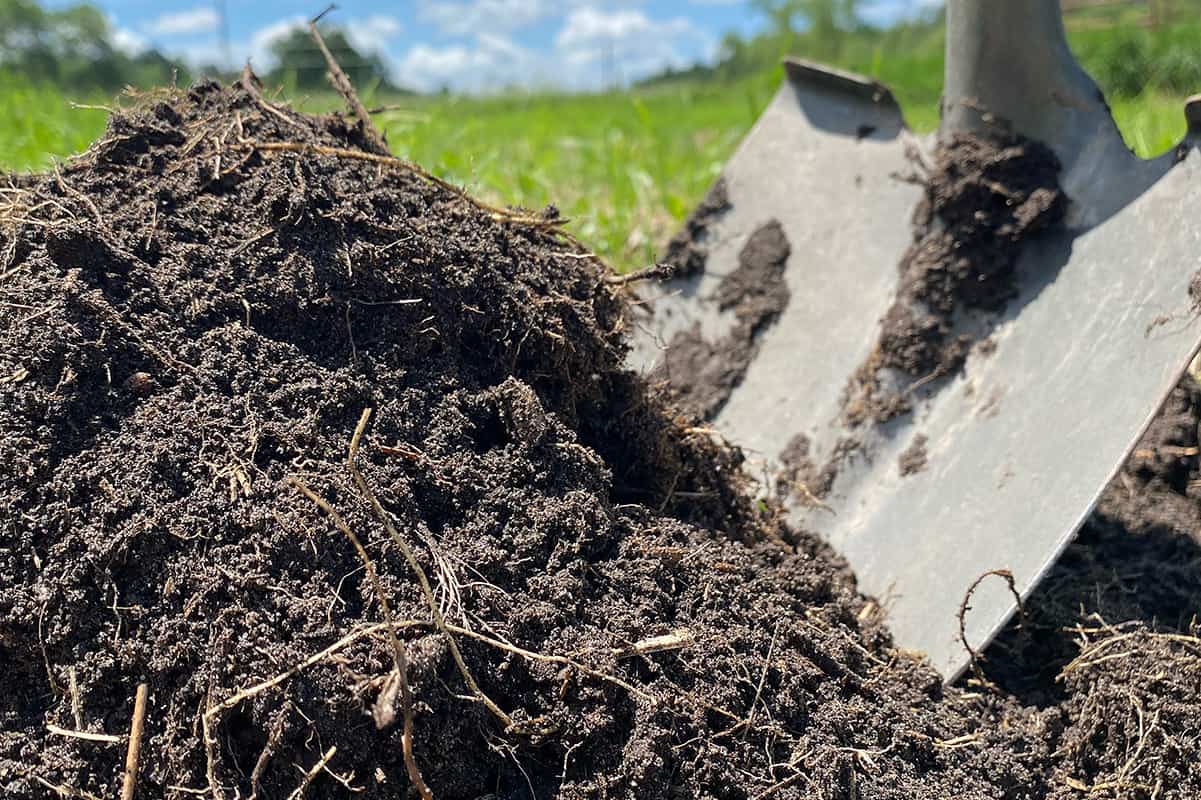…As players discuss the pros and cons of organic vs chemical fertilisers
…debate solutions to improve crop production yield
By Lerato Matheka
Some experts blame Lesotho’s soil erosion soil degradation challenges and low food production on the populated use of chemical fertilisers.
They say chemical fertilisers have exacerbated soil infertility and degradation.
Their views, however, vary from a large majority of farmers who say “time is of the essence in crop production and chemical fertilisers are a catalyst.”
Lebohang Mosaola, an agriculture expert explained that Lesotho’s agricultural sector is mainly categorised by smallholder subsistence production with reliance on rain and both input and output production methods are characterised by limited use of irrigation, improved seed and access to timely use of fertilisers and pesticides.
“Other factors such as soil infertility due to high usage of chemical fertilisers, inadequate use of organic fertilisers, inefficient technologies, poor land preparations, inadequate weeding, and delayed harvesting greatly affect crop production in Lesotho,” Mosaola explained saying most farmers produce for household consumption.
The government of Lesotho through its agriculture ministry sells chemical fertilisers and pesticides at highly subsidised prices to mitigate low yield.
This year, farmers are buying fertilisers at an 80 per cent discounted price while pesticides are selling at a 70 per cent discounted rate.
The Global Fertilizer Markets And Policies document revealed that the continent only accounts for 3-4% of global fertilizer use, of which approximately 50% of its fertiliser supplies nutrify Africa’s all-important cash crops. Consequently, contractions in fertiliser use would have severe ramifications, including undermining, the food security of some agrarian-based communities, where food insecurity challenges are particular.
The document indicated that the use of mineral fertilisers has played a pivotal and historical role in raising agricultural productivity, and hence contributing to food security worldwide, but notes that such fertilisers have come under increasing scrutiny because of their harmful environmental impacts, developing countries have few alternatives that are commercially viable and available on a sufficiently large scale.
Although the government met farmers halfway with slashed prices, the Agric Research department’s research article, on yield capacity revealed that Lesotho farmers do not apply the recommended fertiliser rates for grain due to high costs resulting in a large yield gap compared to yield potential.
The paper revealed that nitrogen deficiency is among the most limiting factors for increased crop yield, saying the management of nitrogen inputs is a major challenge for increased agricultural production.
The department indicated that although the application of inorganic fertilisers helps to address the limitations of essential nutrients, most resource-poor farmers need help accessing the fertiliser due to financial constraints as they come at a high cost.
A farmer and a Program Coordinator of Southern Mountains Associated for Rural Transformation and Development (SMARTD) Lesotho, Mr Fako Faku confirms that while chemical fertilisers are made cheap by the government, accessibility is a problem.
“Farmers that we directly work with do not prefer chemical fertilisers, one because they are not easy to get, the government is always out of stock, and two because of their narrow benefits to fast crop growth and yield, leaving the soil damaged.
Chemical fertilisers also demand one to be dependent and require annual recharge, while organic fertilisers, they say offer double benefits, they feed both the soil and crops,” Faku said.
He indicated that through their different projects, organic fertilisers from livestock waste are easily collected throughout the year.
Mosaola said while Basotho farmers previously used organic fertilisers but were later introduced to inorganic fertilisers, going back to using organic might need to be revised.
“Now tables have turned due to the impacts of climate change. The world is rooting for organic fertilisers, clean energy, and chemical-free food production, but going back to old ways is not feasible because the reality of fast crop growth is now a norm.
“Also most farmers feel the reintroduction of organic fertilisers is a ploy to close the commercial opportunities for the African continent,” the expert said noting organic fertiliser food production tends to be expensive with limited crop yield when compared to chemical fertiliser food production.
“It’s a dilemma and more conversations like this are needed to determine whether we lose one or find a way to use both interchangeably,” Mosaola said.
Alice Mahome, a local farmer who grows a variety of vegetables said her only reason for using chemical fertiliser is to meet the commercial needs.
“…however, the overuse of synthetic fertilisers over time can deplete soils of natural microorganisms and nutrients because generally, chemical fertilisers are made synthetically from inorganic materials including petroleum products and rocks.
“With organic fertilisers, one is relying on either the beneficial microorganisms in the soil or those in the product to convert nitrogen and feed the plant. The results will come but maybe not as quickly as you want them,” she said.
Reintroduction of Organic fertilisers
An agricultural project, Smallholder Agriculture Development Project (SADP II) whose mandate is to help improve agriculture production in Lesotho continues to hold training for farmers working with the government.
In one of their trainings, Mokete Majara, Ministry of Agriculture, Food Security and Nutrition Extension Officer stressed that soil quality plays a central role in growing a variety of crops and achieving large yields.
Its quality, Majara said could spell the success of production every harvesting season therefore farmers have to ascertain the availability of enough nutrients in the soil to support plant life.
“Organic manure is also a fertiliser and improves the soil’s nutrient profile. It gives crops a strong start during the ploughing season,” he said.
Makara said although the agric ministry has started reintroducing organic manure, the majority of farmers still opt for chemical fertilisers.
“There is also an industry confusion because the government moves to reintroduce manure, but turns around and buys chemical fertilisers in large quantity, sells them at ridiculous cheap prices, how then will there be a shift,” Agriculture expert, Mosaola lashed.
The Food and Agriculture Organization of the United Nations (FAO) says Land degradation in sub-Saharan Africa (SSA) is believed to be expanding at an alarming rate, accompanied by the lowest agriculture and livestock yields of any region in the world. While cereal production has increased marginally over the past two decades, more than 70 per cent of this growth is due to area expansion rather than yield increases.
Cost-effective solutions
Khoabane Nkome revealed that Lesotho can easily produce organic manure using the Maluti Mountain Brewery (MMB) brewery waste which is currently still only used as pig-food.
“Sometimes it is not the question of how much nutrients are available in the soil, as it is the question of, do your plant roots have the capacity to reach those nutrients.”
“The Brewery waste fertiliser provides substances that enhance the growth of roots and enhance rapid germination and it is rich in vitamins,” he said adding that an average chemical-laden fertiliser is about providing nitrogen, phosphorus, and potassium, the brewery waste also contains calcium, magnesium and sulphur.
“…Well, some even contain iron, manganese, zinc, copper, boron and even molybdenum but in very small quantities,” the researcher said.
Fertiliser accessibility and pricing
An animal and farm-feeds retailer, Likhang Hlabeli said production price is usually the driving factor to why some farmers prefer chemical fertilisers over organic.
“Collection of organic fertilisers is an expensive and tiresome exercise, especially for farmers who are only in crop production. So, to choose between the two, chemical fertilisers win. Also, farmers say chemical fertilisers release nutrients at a much faster rate compared to organic fertilisers.
“As far as the amount of time it takes for fertilisers to show results is concerned, inorganic is the faster option,” he said.
In preparation for the summer cropping, the government has paid a subsidy to fertiliser producers to allow farmers to buy at below-market rates.
The Agriculture and Food Security Minister Thabo Mofosi explained that his ministry is in the process of procuring and availing more seeds and fertilisers for summer cropping, citing there was a delay due to limited stock.
“We have experienced a shortfall of supply from the markets in South Africa due to high demand in that country – both countries have their copping season running concurrently,” the minister revealed.
He added, “There is also a delay in the process of verifying imported merchandise before crossing the border into Lesotho, therefore, farmers who need the inputs and other services we offer should report to the nearest agricultural offices for necessary and accurate information.”
The minister explained that the highlands districts were initially prioritised due to the short cropping season, as a result, the first consignments were distributed to the mountainous zones.
Mofosi further indicated that currently, the ministry focuses on the lowlands when the demand for inputs overruns the supply.
“The ministry will do anything possible to ensure adequate supply, as more inputs are yet to be procured and mobilised to the lowlands districts for 2023/2024 summer cropping,” he said, encouraging farmers to take advantage of the cropping period that elapses in December.
He said the government has set aside USD30,620,301.74 for summer cropping production.An agriculture researcher, Mojalefa Mohapi, indicated that in Lesotho, chemical fertilisers are widely used to achieve maximum productivity in conventional agriculturalsystems.
He said the market-specified demands and land resource limitations are the main reasons to use chemical fertilisers and pesticides to maximise crop productivity.
“Currently, the focus is to promote chemical fertilisers in alignment with local and international market demand. Lesotho does not have a clear for the usage of both organic and inorganic fertilisers, thus if the country would choose to shift and use only organic fertilisers, it would be impossible, and the supply would be a nightmare,” Mohapi said.
Summary
- The document indicated that the use of mineral fertilisers has played a pivotal and historical role in raising agricultural productivity, and hence contributing to food security worldwide, but notes that such fertilisers have come under increasing scrutiny because of their harmful environmental impacts, developing countries have few alternatives that are commercially viable and available on a sufficiently large scale.
- Although the government met farmers halfway with slashed prices, the Agric Research department’s research article, on yield capacity revealed that Lesotho farmers do not apply the recommended fertiliser rates for grain due to high costs resulting in a large yield gap compared to yield potential.
- The department indicated that although the application of inorganic fertilisers helps to address the limitations of essential nutrients, most resource-poor farmers need help accessing the fertiliser due to financial constraints as they come at a high cost.

Your Trusted Source for News and Insights in Lesotho!
At Newsday Media, we are passionate about delivering accurate, timely, and engaging news and multimedia content to our diverse audience. Founded with the vision of revolutionizing the media landscape in Lesotho, we have grown into a leading hybrid media company that blends traditional journalism with innovative digital platforms.








